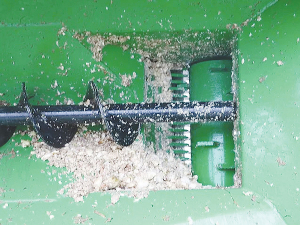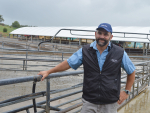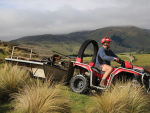Fodder beet continues to play an important part in dairy rations, with typical yields of 15-18 tonnes of DM per hectare, or in some areas not limited by lack of moisture, yields of up to 25 tonnes/ha can be achieved by May/June.
Typically harvested, cleaned and then stockpiled, utilisation can be addressed with bulk chopping before feeding, or on an as required, daily basis.
The Cross Engineering Beet Bucket Chopper is designed for use with front-end loaders, telehandlers or loading shovels, with all machines supplied with an integral three-point linkage as standard, meaning they can also be mounted to the rear of non-loader equipped tractor.
Unlike many machines in the market that use an auger system to push the beet through a die, the Cross machine uses an auger in the bottom of the hopper to push the beet laterally into a rotor on the side of the machine where it is chopped.
Working in conjunction with an infinitely adjustable gate, the beet is chopped to a consistent size, meaning there are no longer any large lumps of material that might cause a choking hazard.
In addition, the configuration means the machine is able to deal with any stones in the sample as it also incorporates a stone trap that can be hydraulically release, alongside a shearbolt system to protect the machine if there are any jams.
A range of models, designated 400, 800, 1000, 1500 and 2000, sees the number signalling the hopper width in millimetres, with the manufacturer suggesting the ideal machine is one that is slightly wider than the tractor/load track width, meaning no discharged beet is driven over.
Offering hopper capacities of 2500 to 3000kg, the recommended horsepower runs from 60 to 140, with outputs claimed from 30 per hour. Using a simple scoop, crowd and chop sequence, the machines are driven hydraulically, meaning there is no need for a PTO connection, so also lends itself to easy attachment and demounting.


















